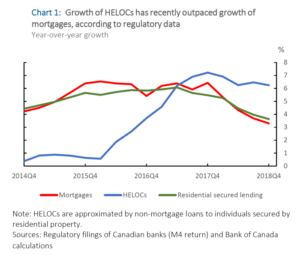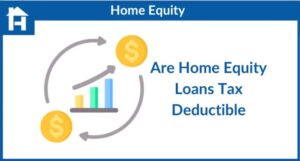
Home equity loan tax deduction, a long string of words that sounds like a snooze-fest, actually holds the key to unlocking savings from your castle’s treasure! If you’ve ever wished to tap into your home’s equity like it’s a secret vault of cash, then you’ve stumbled upon the perfect guide. This delightful dive into the world of home equity loans will show you not only how they work but also how they can be your tax-saving sidekicks in the grand adventure of home financing.
We’re about to navigate the landscape of home equity loans, where interest rates dance and tax deductions twirl! Get ready to compare these loans with their flamboyant cousins, personal loans and mortgages, while also uncovering the magical tax implications that could save you some green. So grab your financial compass, and let’s set sail toward financial wisdom!
Home Equity Loan Basics

Home equity loans are like the Swiss Army knives of financing—versatile, handy, and sometimes a little tricky to wield. They allow homeowners to tap into the value of their property, transforming bricks and mortar into dollars for all sorts of projects, from home renovations to consolidating debt. Understanding the ins and outs of home equity loans can save you from some serious financial faux pas that could turn your home sweet home into a home sweat home.Home equity loans operate on a simple concept: they let you borrow against the equity you’ve built up in your home.
Equity is the difference between your home’s current market value and the outstanding balance on your mortgage. For example, if your home is worth $300,000 and you owe $200,000, you have $100,000 in equity—money that’s just sitting there, waiting for the right opportunity to shine! When you take out a home equity loan, you’re essentially getting a second mortgage, allowing you to borrow a lump sum at a fixed interest rate, which you repay over a set period.
This can be a great option for homeowners looking for larger amounts of cash while enjoying lower interest rates compared to other types of loans.
Comparison with Other Loan Types
When comparing home equity loans to other financing options, like personal loans or traditional mortgages, it’s essential to consider interest rates, repayment terms, and overall cost. Here’s a breakdown of how these loans stack up against one another:
- Home Equity Loans: Typically offer lower interest rates because they are secured by your home. Repayment terms usually range from 5 to 30 years, and the loan amount is often based on the amount of equity you have.
- Personal Loans: These are unsecured loans, meaning they don’t require collateral. They tend to have higher interest rates compared to home equity loans and shorter repayment periods, usually ranging from 2 to 7 years. If you miss a payment, they don’t come after your house—just your credit score.
- Mortgages: A primary mortgage is taken out to purchase a home, generally with a long repayment term (15-30 years). Interest rates can be lower than personal loans but might be higher than home equity loans. Remember, you’re borrowing to buy a house, not to renovate the kitchen—unless you’re refinancing!
Interest rates on home equity loans can vary, but they are generally lower than personal loans. As of 2023, average rates hover around 6-8%, depending on market conditions and your credit profile. Factors influencing these rates include:
- Credit Score: A higher score can lead to better interest rates—think of it as the VIP pass to the lending party.
- Loan-to-Value Ratio (LTV): Lenders look at how much equity you have; a lower LTV ratio can yield better rates.
- Market Conditions: Interest rates fluctuate based on economic indicators and the Federal Reserve’s policies. When the economy sneezes, the interest rates might catch a cold!
“Equity is the cash you never knew you had, just waiting for the right moment to unveil itself!”
Tax Deduction Implications

Ah, the sweet smell of tax deductions wafting through the air! Home equity loans can be your ticket to potential savings—if you play your cards right. However, navigating the tax implications can feel like trying to find a needle in a haystack that’s also on fire. Let’s break it down and see how you can make those deductions work for you—or at least not against you!
Tax Deductions Available for Home Equity Loans
When it comes to home equity loan tax deductions, a few key players are ready to lend a hand (or at least a write-off). Here are the specifics:
- Interest Deduction: Home equity loan interest is generally deductible if the loan is secured by your primary residence or a second home, and you use the proceeds to buy, build, or substantially improve your home.
- Debt Limitations: As per recent regulations, the maximum mortgage debt that can be deducted is $750,000 for married couples filing jointly, or $375,000 for singles. If you’re still hanging on to that cozy $1 million debt from the previous tax law, you might be in for a surprise come tax season!
- Qualified Expenses: To qualify for the deduction, you must use the loan proceeds for home improvements. So, no, funding your planned expedition to the moon doesn’t count!
> “The best part of home equity loans? They’re like a piggy bank that can help fund your next big home project—with a side of tax savings!”
Impact of Tax Reforms on Home Equity Loan Tax Deductions
Tax reform is like a wild roller coaster: thrilling, unpredictable, and sometimes leaving you with a sick feeling in your stomach. In recent years, tax reforms have made significant changes to how home equity loans are treated under the tax code.
- Changes in 2017 Tax Cuts and Jobs Act: This act brought about crucial changes, limiting deductions for home equity loans and clarifying that only loans used for home improvement qualify. If you were hoping to use your equity to fund a vacation, think again!
- State and Local Tax (SALT) Deduction Cap: The SALT cap, which limits deductions for state and local taxes to $10,000, has impacted many homeowners, particularly in higher-tax states. This has left some feeling like they were playing Monopoly but could only collect $200 after passing GO.
- Uncertainty Ahead: With tax regulations being as slippery as a bar of soap in a shower, it’s crucial to stay updated on any changes that may affect your home equity loan deductions in the coming years.
> “Navigating tax reforms is like trying to tango with a porcupine—one wrong move, and you might get pricked!”
Calculating Potential Tax Savings from Home Equity Loan Interest
Calculating tax savings can feel like a math test you didn’t study for. Fear not! With a little bit of arithmetic and the right formulas, you can uncover how much you might save on your taxes through home equity loan interest deductions.To calculate potential savings, follow these steps:
Tax Savings = Deductible Loan Interest x Your Tax Rate
For example, let’s say you have a $50,000 home equity loan with an interest rate of 5%. That’s $2,500 in interest for the year.
If your tax rate is 24%, the calculation would be
Tax Savings = $2,500 x 0.24 = $600
Now, if you’re thinking, “Hey, $600 doesn’t sound like a lot,” remember that every penny adds up, especially when you’re sprucing up your home, or just trying to keep Uncle Sam a little happier (and your wallet a little fuller).Keep in mind that these calculations might change based on how tax laws evolve, so dust off that calculator and stay informed!
Financial Considerations and Alternatives
Navigating the financial landscape can feel as challenging as assembling IKEA furniture without the instructions. When considering a home equity loan, it’s crucial to not only weigh the benefits but also explore alternative pathways and the potential risks involved. In this section, we’ll unpack other financial options, identify the risks tied to home equity loans, and provide guidance for making the best choice tailored to your unique situation.
Alternatives to Home Equity Loans
While home equity loans can be a tempting option for tapping into your home’s value, there are other financial tools in your toolkit that might just fit the bill better. Here are some alternatives that could help you consolidate debt or fund your next big adventure—hopefully one that involves a beach rather than a mountain of debt!
- Debt Consolidation Loans: These loans combine multiple debts into a single payment, often at a lower interest rate. Think of it as putting all your financial eggs in one basket—just make sure that basket is sturdy!
- Personal Loans: Unsecured personal loans can provide quick cash without the need for collateral. They are versatile but come with varying interest rates, so shop around like you’re at a shoe sale!
- Credit Cards with 0% Introductory Rates: If you have good credit, this might be a slick move. You can transfer existing debt and manage it interest-free for a limited time. Just don’t forget to pay it off before the clock runs out—otherwise, it could turn into a pumpkin!
- Home Equity Line of Credit (HELOC): A HELOC offers flexibility and might be a better option if you don’t need a lump sum upfront. It’s like a credit card secured by your home. Just remember, with great flexibility comes great responsibility!
Potential Risks of Home Equity Loans
Before you dive headfirst into a home equity loan, it’s essential to be aware of the potential pitfalls. After all, just because it seems like a good idea at the time doesn’t mean it won’t lead to a financial hangover later on!
- Risk of Foreclosure: If you’re unable to make payments, you could lose your home. It’s the financial equivalent of playing with fire—fun until someone gets burned!
- Variable Interest Rates: Many home equity loans come with variable rates, meaning your monthly payments might skyrocket unexpectedly. It’s like a roller coaster ride—exciting until you realize you forgot to buckle in!
- Fees and Closing Costs: These loans can come with hidden fees that can eat into your equity faster than a kid at an all-you-can-eat buffet. Always read the fine print!
Guide for Selecting the Best Financial Option
Choosing the right financial option is a lot like selecting the perfect outfit for an important event—one size does not fit all. Here’s a handy guide to help you determine the best choice based on your personal circumstances.
- Assess Your Credit Score: A good credit score opens doors to better rates. If you’re not sure where you stand, grab that report and take a peek—knowledge is power!
- Evaluate Your Debt-to-Income Ratio: Lenders often look at this ratio to assess your ability to repay. A lower ratio is like a VIP pass at a club—you’re more likely to get in!
- Consider Financial Counseling: If you’re feeling overwhelmed, a financial counselor can help you understand your options and create a personalized plan. Think of them as your financial GPS—no more getting lost on the road to financial freedom!
- Think Long Term: Remember to weigh the long-term implications of borrowing against your home versus other options. It’s like deciding if you want a fast-food meal right now or a healthier choice that will make you feel good tomorrow!
“The best way to predict your future is to create it.” – Peter Drucker
Last Recap
In conclusion, the home equity loan tax deduction is like finding a hidden treasure map that leads you to potential savings! By understanding how these loans work and the tax benefits it brings, you can make informed decisions that will benefit your financial future. Remember, whether you decide to venture forth with a home equity loan or explore other options, knowledge is your trusty sword in this financial quest.
So go forth, brave homeowner, and may your tax season be ever in your favor!
FAQ Resource
What is a home equity loan?
A home equity loan allows you to borrow against the equity you’ve built up in your home, often at a fixed interest rate.
Can I deduct all interest paid on a home equity loan?
You can deduct interest on a home equity loan, but only if the loan is used to buy, build, or improve your home.
Are there any risks involved with home equity loans?
Yes, the primary risk is that you could lose your home if you fail to make payments, as the loan is secured by your property.
How do tax reforms affect home equity loan deductions?
Recent tax reforms have limited the ability to deduct interest on home equity loans unless they meet specific criteria related to home improvement.
Is there a limit on how much I can borrow from a home equity loan?
Yes, the amount you can borrow is typically limited to a percentage of your home’s appraised value minus any existing mortgage balance.






